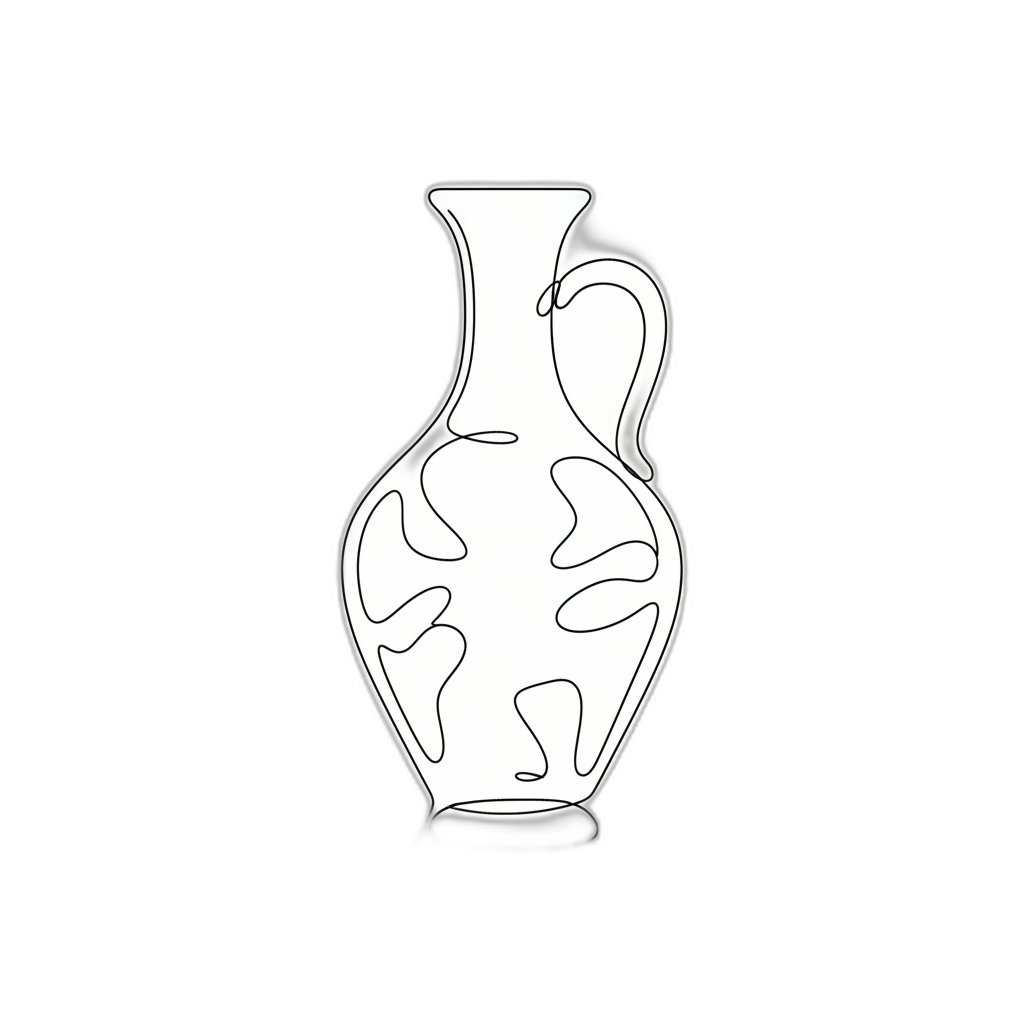






5-Star Service, Trusted & Loved by Hundreds
Your Appraiser Search Ends Here
Your Appraiser Search Ends Here
.avif)

Nationwide Coverage – Appraisals Anywhere in the US

Get it done Onsite or Online

Any Asset, Covered

Defensible for Any Purpose
Frequently Asked
Questions
No Frequently Asked Questions Found.
Damage claims serve as a critical mechanism for addressing unexpected financial burdens across multiple contexts. They typically arise in scenarios involving property destruction, personal injury, business interruption, or liability issues. The core purpose is to restore the affected party to their financial position prior to the damaging event.
The complexity of damage claims varies depending on the specific circumstances. Some may involve straightforward property repairs, while others require extensive investigation and expert assessment. Key components include thorough documentation, precise damage evaluation, and strategic negotiation to achieve fair compensation.
Successful damage claims depend on several fundamental elements: comprehensive evidence gathering, timely reporting, professional damage assessment, and clear communication between all involved parties. Claimants must be prepared to provide detailed documentation, including photographs, repair estimates, medical records, and incident reports.
Different types of damage claims exist, each with unique characteristics. Property damage claims address physical asset destruction, automobile claims cover vehicle-related losses, liability claims handle negligence-induced damages, and business interruption claims compensate for operational disruptions.
The claim process typically follows a structured approach: initial documentation, formal notification, professional damage assessment, negotiation, and final resolution. Each stage requires careful attention to detail and strategic approach to maximize potential compensation.
Understanding the nuanced nature of damage claims empowers individuals and businesses to navigate complex compensation scenarios effectively, ensuring fair treatment and financial protection in challenging circumstances.
A professional appraisal establishes a precise monetary value for damaged property, offering a comprehensive assessment that goes beyond subjective estimations. By meticulously documenting the extent and financial impact of damage, an appraisal creates a robust foundation for your claim.
Accredited appraisers bring specialized expertise to the evaluation, analyzing intricate details that untrained individuals might overlook. Their objective assessment considers multiple factors including market conditions, comparable property values, and specific damage characteristics. This professional approach ensures a fair and accurate representation of the property's true value.
Documentation from a professional appraisal becomes a powerful tool when negotiating with insurance providers. The detailed report serves as compelling evidence, substantiating the extent of damages and providing a clear, quantifiable basis for compensation. This documentation can significantly expedite the claims process and minimize potential disputes.
The appraisal also provides claimants with confidence and clarity during what can often be a stressful experience. By presenting a comprehensive, expert-level analysis, individuals can approach insurance negotiations with greater assurance and strategic insight.
Moreover, a professional appraisal strengthens a claimant's negotiating position. The rigorous, well-documented evaluation makes it considerably more challenging for insurance companies to undervalue or dismiss legitimate claims. This approach ultimately increases the likelihood of receiving fair and appropriate compensation.
Certified appraisers with specialized expertise conduct these evaluations by performing a detailed inspection that examines multiple critical factors. These include the item's physical condition, historical age, provenance, inherent rarity, and current market demand - each element carefully weighed to establish an accurate and defensible valuation.
Individuals typically seek personal property appraisals during significant life transitions and financial planning scenarios. Common contexts include estate planning, where precise asset valuation facilitates equitable property distribution, divorce proceedings requiring fair asset division, and insurance documentation to ensure adequate coverage for valuable possessions.
The appraisal process also proves invaluable for potential sales, auctions, and investment decisions. Sellers can leverage professional valuations to price items strategically, while buyers gain confidence through independent verification of an item's market worth. This objective assessment helps both parties navigate transactions with greater transparency and understanding.
Tax-related considerations frequently drive the need for personal property appraisals as well. Charitable donations, for instance, require documented valuations to substantiate potential tax deductions, ensuring compliance with established regulatory guidelines.
Ultimately, a professional personal property appraisal provides owners with a comprehensive understanding of their assets' financial significance. By offering detailed insights and objective analysis, these evaluations empower individuals to make informed decisions about their personal property with enhanced confidence and clarity.
The online appraisal process typically involves two primary methods. First, high-resolution photographic submissions allow appraisers to conduct detailed evaluations. Clients can upload clear, well-lit images that capture multiple angles and specific details of their items, providing crucial visual information for accurate valuation.
For more complex or nuanced items, live video consultations offer an interactive alternative. Using video conferencing platforms, appraisers can engage in real-time discussions, examine items dynamically, and ask targeted questions to gather comprehensive information about the property's condition, provenance, and unique characteristics.
Online personal property appraisals present several compelling advantages:
- Unparalleled convenience for clients
- Rapid turnaround times
- Geographical flexibility
- Comprehensive assessment capabilities
- Minimal disruption to personal schedules
Professional online appraisers maintain rigorous standards, ensuring that remote evaluations meet the same technical and ethical guidelines as traditional in-person assessments. By combining technological innovation with expert knowledge, these digital appraisal services provide accurate, reliable property valuations tailored to individual client needs.
Antique appraisers delve into historical items over a century old, carefully examining factors like condition, rarity, and provenance. They provide nuanced insights into pieces that carry significant historical and aesthetic value, understanding the intricate details that influence market pricing.
Art appraisers focus on evaluating artistic works, considering complex factors such as the artist's reputation, artwork condition, historical significance, and current market demand. Their expertise is critical for insurance documentation, potential sales, and comprehensive estate planning.
Jewelry appraisers specialize in assessing precious and costume jewelry, meticulously analyzing materials, craftsmanship, design elements, and market value. Their detailed evaluations are essential for insurance coverage, potential resale, and estate settlement processes.
Collectibles appraisers concentrate on unique items like rare coins, vintage stamps, sports memorabilia, and classic toys. They determine value by carefully examining rarity, condition, and collector market dynamics, providing critical insights for collectors and investors.
Real estate personal property appraisers concentrate on items integrated within property transactions, including fixtures, equipment, and furnishings. Their comprehensive assessments support accurate property valuations, tax assessments, and sales negotiations.
Industrial and commercial appraisers specialize in evaluating machinery, equipment, and technical assets across various industries. They assess functional condition, remaining operational life, and potential market value, supporting critical financial and strategic business decisions.
General personal property appraisers offer versatile valuation services across a broad spectrum of items, from household goods to electronics and miscellaneous collectibles. Their adaptable expertise makes them valuable resources for diverse appraisal needs.
These specialized professionals collectively represent a sophisticated network of valuation experts, each contributing unique insights and methodological approaches to understanding the complex world of personal property assessment.
Tax considerations represent a significant motivation for obtaining an appraisal. When donating high-value items, a formal appraisal becomes essential for verifying potential tax deductions. The IRS requires documented valuations for items exceeding specific thresholds, ensuring donors can accurately substantiate the fair market value of their contributions.
Insurance protection constitutes another crucial reason for securing a professional appraisal. Comprehensive documentation helps homeowners and collectors ensure their valuable possessions are appropriately covered. In the event of loss, theft, or damage, a precise appraisal provides definitive evidence of an item's worth, streamlining the claims process and protecting the owner's financial interests.
Estate planning demands meticulous asset valuation to facilitate equitable distribution among heirs. An accurate appraisal prevents potential conflicts by establishing clear, objective values for personal property. This becomes particularly important during probate proceedings, where precise asset valuation ensures fair resolution and complies with legal requirements.
Legal proceedings frequently rely on professional property appraisals to resolve complex disputes. Divorce settlements, business divisions, and other legal matters benefit from objective, expert valuations that provide transparent and defensible assessments of personal property's worth.
Financial planning and investment strategies also gain significant value from current, professional appraisals. These assessments help individuals and collectors understand market trends, track asset appreciation, and make informed decisions about buying, selling, or maintaining their personal property portfolios.
A professional personal property appraisal transcends mere number-crunching. It represents a comprehensive analysis that protects financial interests, provides critical documentation, and offers peace of mind across multiple personal and professional contexts.
Why Personal Property Appraisals Matter in Damage Claims
Understanding the Role of Personal Property Appraisals in Damage Claims
Personal property appraisals are critical in navigating insurance claims and legal proceedings following property damage. When unexpected events like natural disasters, theft, or accidents occur, a professional appraisal becomes an essential tool for substantiating your claim.
Key Benefits of Professional Property Appraisals
- Fair Market Value Assessment: Certified appraisers provide an accurate valuation that considers:
- Current item condition
- Age of the property
- Market demand
- Unique characteristics
- Documented Evidence: A comprehensive appraisal report offers:
- Proof of ownership
- Objective property valuation
- Simplified claims processing
- Legal Protection: Professional appraisals can:
- Provide impartial expert opinions
- Support mediation in disputes
- Prevent undervalued settlement offers
The Importance of Professional Evaluation
Professional appraisals go beyond simple monetary assessment. They create a detailed, credible record that insurance companies and legal entities respect. By capturing the true value of damaged property, these evaluations protect your interests during challenging times.
Emotional and Practical Support
Beyond the financial aspects, a professional appraisal offers peace of mind. During stressful situations involving property damage, having a thorough, expert assessment can provide clarity and confidence in navigating complex insurance and legal processes.
By understanding the critical role of personal property appraisals, individuals can approach damage claims more effectively, ensuring fair treatment and appropriate compensation.
Navigating the Landscape of Property Damage Assessment
When dealing with property damage, understanding the appraisal process is crucial for making informed decisions. Property damage assessments are vital for various scenarios, including home insurance claims, natural disasters, and personal property loss. An accurate appraisal not only determines the value of the damaged items but also provides clarity and support in securing appropriate compensation.
The Property Damage Appraisal Process
The appraisal process begins with a thorough inspection of the damaged property. Trained appraisers evaluate each piece's condition, quality, and overall market value through several critical stages:
Key Steps in Property Damage Assessment
- Documentation
- Capture high-resolution photographs of damaged items
- Create detailed item descriptions
- Carefully note specific damage characteristics
- Establish a comprehensive visual and written record
- Research and Analysis
- Conduct extensive market research
- Assess value of comparable items
- Consider critical valuation factors:
- Age of the item
- Rarity
- Current condition
- Market demand
- Compare damaged items to similar market properties
- Report Compilation
- Develop a comprehensive, detailed appraisal report
- Include critical documentation:
- High-quality photographs
- Detailed market analyses
- Expert professional opinions
- Create a document suitable for insurance claim processing
- Professional Standards Compliance
- Ensure adherence to industry guidelines
- Work with certified or accredited professionals
- Meet legal and insurance documentation requirements
Maximizing Your Property Damage Claim
By understanding the intricate process of property damage assessment, property owners can approach their claims with confidence. Clear communication with appraisers and comprehensive documentation can help streamline the claims process, ultimately ensuring fair compensation for damaged property.
Key recommendations include maintaining detailed records, being transparent about item conditions, and working collaboratively with professional appraisers to document and validate property damage.
What Types of Personal Property Qualify for Appraisal?
When seeking a personal property appraisal for damage claim purposes, understanding which items qualify is crucial for accurate valuation and potential compensation.
Categories of Personal Property Eligible for Appraisal
- Real Estate Embedded Property
- Fixtures and specialized equipment integrated with real estate
- Landscaping features and permanent installations
- Household Items
- Furniture
- Electronics
- Appliances
- Artwork
- Antiques and high-end branded items
- Jewelry and Watches
- Precious stones and metals
- Designer and unique piece evaluations
- Both intrinsic and sentimental value considerations
- Collectibles and Memorabilia
- Sports memorabilia
- Vintage toys
- Rare coins
- Items with potential appreciation value
- Business Equipment and Machinery
- Industrial equipment
- Specialized machinery
- High-value technological assets
- Vehicles and Vessels
- Automobiles
- Motorcycles
- Boats
- Recreational vehicles
Key Considerations for Property Appraisal
Professional appraisals provide critical insights by:
- Establishing accurate current market values
- Supporting comprehensive damage claims
- Utilizing specialized expertise for different property types
- Documenting item condition and worth
Understanding the range of personal property eligible for appraisal enables individuals and businesses to better prepare for potential damage claims, ensuring thorough and precise valuation processes.
Inside the Appraisal Process: A Step-by-Step Guide
Understanding the Appraisal Process
Navigating a personal property appraisal for damage claims requires a systematic and professional approach. Here's a comprehensive breakdown of the key steps involved:
1. Initial Consultation
- Conduct an in-depth discussion about the specific damage claim
- Gather critical information including:
- Type of property
- Extent of damage
- Purpose of the appraisal
- Collect relevant supporting documentation:
- Purchase receipts
- Previous appraisals
- Maintenance records
2. Comprehensive Property Examination
- Perform a meticulous inspection of the damaged property
- Key examination activities include:
- Documenting the current condition
- Taking detailed photographs
- Identifying and noting specific damage characteristics
- Assess damage type:
- Cosmetic damage
- Functional impairment
- Structural deterioration
3. Detailed Research and Market Analysis
- Conduct extensive research to establish accurate property value
- Valuation methods include:
- Analyzing recent comparable sales
- Consulting industry price guides
- Evaluating current market trends
- Determine fair market value prior to damage
4. Professional Report Generation
- Compile a comprehensive appraisal report containing:
- Detailed property description
- Precise damage assessment
- Valuation methodology
- Concluded market value
- Ensure clear, professional formatting for stakeholder review
5. Follow-Up and Communication
- Discuss appraisal findings in detail
- Provide guidance on potential next steps
- Maintain open communication channels
- Address any additional questions or concerns
Understanding this systematic approach empowers property owners to confidently navigate the appraisal process and effectively support their damage claims.
Overcoming Challenges in Damaged Property Valuation
Understanding Complexities in Property Damage Valuation
Filing damage claims requires nuanced expertise in personal property assessment. Several critical challenges can complicate the valuation process, making professional guidance essential.
Key Challenges in Damage Property Valuation
- Condition Variability: Accurately assessing item damage involves more than surface-level evaluation
- Requires comprehensive inspection techniques
- Demands detailed photographic documentation
- Involves standardized damage assessment criteria
- Emotional vs. Financial Value: Separating sentimental attachment from objective market worth
- Professional appraisers focus on market-based valuation
- Utilize recent comparable sales data
- Eliminate personal bias in assessment
- Market Dynamics: Economic fluctuations impact property valuation
- Prices can rapidly change based on economic conditions
- Requires continuous market trend analysis
- Demands up-to-date comparative pricing information
- Documentation Challenges: Proving property value and condition
- Importance of maintaining comprehensive ownership records
- Professional appraisers can reconstruct value evidence
- Use industry benchmarks when original documentation is unavailable
Navigating the Valuation Process
Understanding these challenges helps property owners approach damage claims more strategically. Professional appraisers bring critical expertise in navigating complex valuation scenarios, ensuring a comprehensive and fair assessment of damaged personal property.
The key to successful property damage claims lies in meticulous documentation, objective evaluation, and a deep understanding of market dynamics.
The Critical Role of Certified Professional Appraisers
The Critical Role of Certified Professional Appraisers in Damage Claims
Certified professional appraisers are pivotal in personal property damage claims, providing essential expertise that ensures fair and accurate compensation. Their specialized skills transform complex valuation challenges into clear, defensible assessments.
Key Advantages of Certified Professional Appraisers
- Trusted Expertise
Certified appraisers bring comprehensive training and professional accreditation to property evaluations. Their qualifications encompass:
- Deep understanding of market trends
- Advanced valuation methodologies
- Specialized knowledge across diverse asset categories
- Objective and Impartial Assessments
Professional appraisers deliver unbiased evaluations that:
- Eliminate personal or emotional influences
- Provide credible documentation for insurance claims
- Mitigate potential disputes over property value
- Comprehensive Documentation
Their appraisal reports feature:
- Detailed item descriptions
- High-quality photographic evidence
- Precise valuation calculations
- Transparent reporting standards
- Strategic Communication
Appraisers excel in:
- Articulating complex valuation principles
- Explaining assessment methodologies
- Bridging communication between clients and insurers
- Claims Process Guidance
Professional appraisers offer critical support by:
- Explaining claim procedures
- Identifying potential challenges
- Protecting client interests
Conclusion
Certified professional appraisers transform the damage claims landscape by providing rigorous, transparent, and expertly crafted valuations. Their commitment to accuracy and professionalism ensures clients receive fair representations of their property's true value.
Essential Documentation for a Comprehensive Property Appraisal
Comprehensive Documentation for Property Damage Appraisal
Preparing a thorough collection of documentation is critical when seeking a comprehensive property damage appraisal. The right evidence can significantly strengthen your claim and ensure an accurate assessment.
Critical Documentation Categories
- Photographic Evidence
- Capture detailed "before and after" images of the damaged property
- Ensure photographs clearly show the extent and specific areas of damage
- Date and timestamp all photographic documentation
- Comprehensive Inventory Documentation
- Create a detailed list of all damaged items
- Include specific details such as:
- Item descriptions
- Purchase dates
- Original purchase costs
- Serial numbers
- Current estimated value
- Financial Verification Documents
- Collect original purchase receipts and invoices
- Gather proof of ownership documentation
- Include recent valuation statements for high-value items
- Property Maintenance Records
- Compile comprehensive maintenance history
- Document all repairs and improvements
- Include dates and costs of previous work
- Insurance and Legal Documentation
- Provide complete insurance policy details
- Include coverage specifications related to personal property
- Gather any relevant incident reports
- Supporting Witness Information
- Collect statements from witnesses
- Obtain contact information for potential testimonial sources
- Document any expert assessments or third-party observations
Strategic Documentation Tips
- Organize documents chronologically
- Make digital and physical copies
- Ensure all documentation is clear and legible
- Store documents securely
Meticulous documentation serves multiple purposes: it validates your claim, provides clear evidence of property condition, and expedites the appraisal process. The more comprehensive and organized your documentation, the more smoothly your property damage assessment will proceed.
How Precise Appraisals Maximize Your Insurance Settlement
When dealing with damage claims, a precise appraisal can be the key to maximizing your insurance settlement. Insurance companies rely heavily on documented property values when determining payouts for claims related to damage or loss. An accurate appraisal provides critical evidence to support your claim.
Why Precise Appraisals Matter in Insurance Claims
A thorough appraisal delivers a comprehensive assessment of damaged goods, highlighting specific attributes, conditions, and financial values. This documentation serves as crucial evidence that clearly illustrates the extent and financial implications of your loss.
Key Benefits of Professional Property Appraisals
- Professional Expertise: Certified appraisers bring specialized knowledge about property types, market trends, and sophisticated valuation methods, ensuring your possessions are accurately assessed.
- Comprehensive Documentation: Detailed reports with photographs, precise descriptions, and transparent valuation methodologies substantiate claims and minimize potential disputes.
- Strategic Negotiation Advantage: Well-supported appraisals provide substantial leverage during insurance negotiations, encouraging insurers to consider more equitable settlement offers.
- Streamlined Claims Processing: Clear, professional documentation enables faster claim resolutions by providing insurers with immediate, verifiable property information.
Navigating Insurance Claims Successfully
Investing in a precise personal property appraisal is a strategic approach to managing potential insurance claims. By presenting comprehensive, professionally validated documentation, you significantly improve your chances of receiving a fair and adequate settlement that truly reflects your property's value.
Preparing Your Property: Expert Strategies for a Successful Appraisal
Strategic Preparation for Your Property Appraisal
Preparing for a personal property appraisal requires meticulous planning and a strategic approach. The success of your damage claim depends on thorough documentation and professional presentation.
Key Strategies for Appraisal Success
- Comprehensive Documentation
- Create a detailed inventory of all property
- Include high-quality photographs of each item
- Gather original purchase receipts and warranty information
- Document the condition of items before damage occurred
- Property Presentation
- Thoroughly clean and organize your space
- Remove clutter that might obstruct item examination
- Ensure clear pathways and accessibility
- Present items in their most representative condition
- Accessibility and Transparency
- Provide unrestricted access to all property areas
- Clear blocked spaces like attics, basements, and storage areas
- Be completely honest about item history and existing damage
- Disclose any previous appraisals or assessments
- Market Knowledge
- Research current market values for similar items
- Understand depreciation and condition impact on value
- Be prepared to discuss item-specific market trends
- Have comparable sales information readily available
By implementing these expert strategies, you'll create the optimal environment for a comprehensive and accurate property appraisal, maximizing the potential of your damage claim assessment.
Your Personal Property Appraisal Questions Answered
Understanding Personal Property Appraisals for Damage Claims
When navigating personal property appraisals for damage claims, having clear information is crucial. Here are comprehensive insights to help you understand the process and its importance.
Why Personal Property Appraisals Matter
- Provides an objective assessment of item values
- Essential documentation for insurance claims
- Ensures fair compensation for damaged or lost possessions
- Expedites the claims resolution process
Selecting a Qualified Appraiser
Choosing the right professional is critical to obtaining an accurate valuation. Key considerations include:
- Accreditation from recognized industry organizations
- Specialized expertise in specific item categories
- Adherence to established ethical standards
- Comprehensive understanding of valuation methodologies
The Appraisal Process Explained
A thorough appraisal involves multiple critical steps:
- Detailed item inspection
- Evaluation of key factors:
- Item age
- Current condition
- Market demand
- Historical significance
- Comprehensive research using market data
- Comparative analysis of similar items
Documentation and Preparation
To support an accurate appraisal, gather the following:
- Original purchase receipts
- Clear, detailed photographs
- Historical documentation
- Maintenance records
Appraisal Timeline
Appraisal duration varies depending on several factors:
- Number of items being evaluated
- Complexity of the items
- Required research depth
Typical timeframes range from a few hours to several days, resulting in a comprehensive written report detailing item values.
Understanding these key aspects of personal property appraisals empowers you to navigate damage claims with confidence and clarity.
Securing Fair Compensation: The Appraisal Advantage
Understanding the Importance of Personal Property Appraisals for Damage Claims
When unexpected incidents like floods, fires, or theft occur, navigating the compensation process can be overwhelming. A comprehensive personal property appraisal becomes a critical tool in securing fair and accurate reimbursement for your damaged belongings.
The Power of Professional Valuation
- Objective Assessment: Certified appraisers provide an unbiased evaluation of your property's value, leveraging:
- Current market trends
- Specific item conditions
- Comparable sales data
- Credible Documentation: A professional appraisal offers robust evidence that strengthens your insurance claim
Key Benefits of a Comprehensive Appraisal
- Detailed Claim Support
A thorough appraisal report typically includes:
- High-quality photographs
- Precise item descriptions
- Comprehensive condition assessments
- Accurate replacement cost estimates
- Claim Process Acceleration
Comprehensive documentation helps:
- Reduce potential claim disputes
- Expedite insurance claim processing
- Provide clear, substantiated evidence
- Stress Reduction
Professional appraisers manage the complex valuation process, allowing you to:
- Focus on personal recovery
- Avoid intricate negotiation details
- Minimize emotional burden
Dispute Resolution and Protection
A certified appraisal serves as a powerful safeguard in potential disagreements, offering:
- Solid, professional documentation
- Enhanced claim credibility
- Clear evidence of thorough evaluation
Final Considerations
Investing in a professional personal property appraisal is more than a procedural step—it's a strategic approach to ensuring fair compensation during challenging times. By providing objective, detailed documentation, you protect your interests and streamline the recovery process.
View all Locations
BEST-IN-CLASS APPRAISERS, CREDENTIALED BY:



















.svg)







